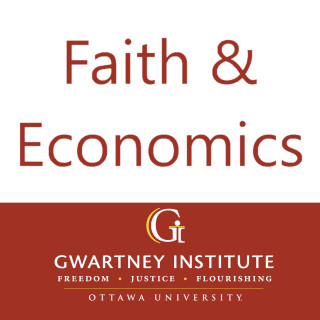

This week's discussion covered a recent story about a local woman who is pushing back against the regulations banning gardening and keeping bees as a business in the city of Ottawa KS. Join us as the Gwartney Team discusses entrepreneurship, home businesses, and property rights.
Timeline:
Restrict the Business / 3.00
Government is thinking of Externalities? / 6.30
Private Solutions or Collective Action / 13.15
People require too much of one another? / 19.30
Reduced competition / 22.45
Vote with your feet / 27.00
https://kansasjusticeinstitute.org/case/right-to-earn-selling-home-raised-honey/